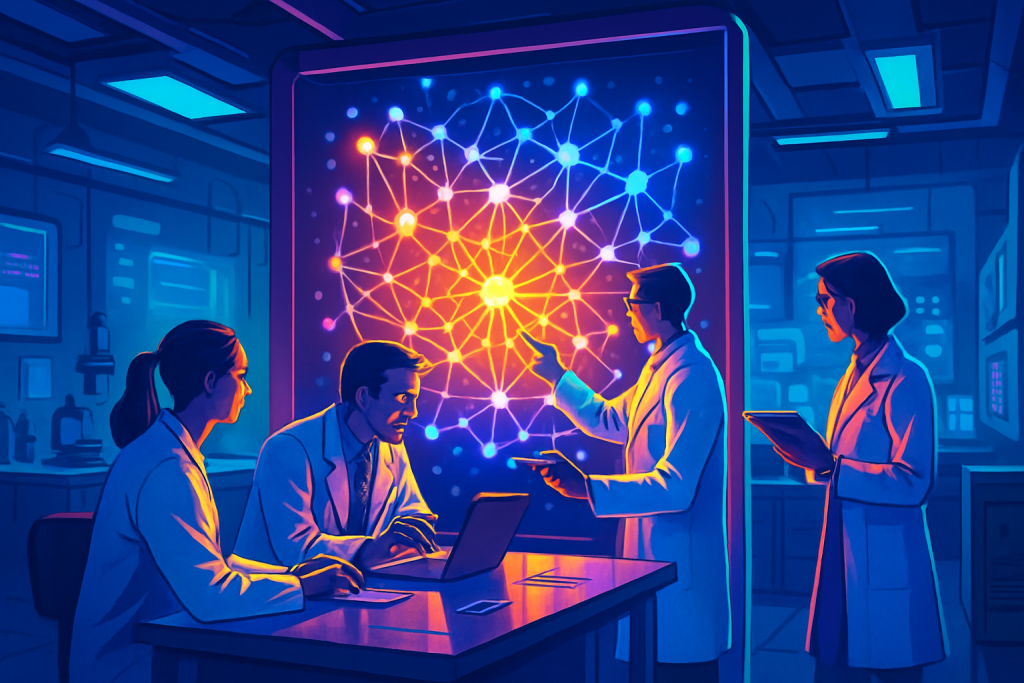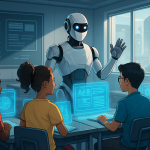September 14th, 2025. Mark it in your calendars, folks, because that’s the day the AI landscape shifted. OpenAI, not content with merely tweaking the algorithms and adding a few more parameters, dropped a bombshell: OpenAI 01. Forget incremental improvements; this feels like they jumped straight to the next level. Remember how Neo suddenly saw the Matrix code in The Matrix? That’s the vibe. This isn’t just another chatbot; it’s a paradigm shift.
But before we dive into the shiny, new features, let’s rewind a bit. The journey to OpenAI 01 wasn’t a straight line; it was more like navigating a particularly chaotic game of Chutes and Ladders. We’ve seen the stumbles, the limitations of earlier models that struggled with, say, advanced calculus or understanding the nuances of Shakespeare. These earlier systems were impressive, sure, but they often felt like incredibly talented parrots, regurgitating information without true comprehension. OpenAI, apparently, wasn’t satisfied with parrot-level intelligence.
Whispers started circulating months ago. Codenames like “qar” and “Strawberry” tantalized the tech world. Speculation ran rampant. Would this be the AI that finally cracked cold fusion? Would it be able to write the next great American novel? Or, more realistically, would it just be slightly better at generating clickbait articles? The answer, it seems, is somewhere in between.
So, what exactly does OpenAI 01 bring to the table? Prepare yourself, because this is where it gets interesting. First and foremost, it’s all about enhanced problem-solving. We’re talking about an AI that can tackle complex scientific and mathematical problems with a level of sophistication previously unseen. Imagine researchers using OpenAI 01 to accelerate drug discovery, model climate change with unprecedented accuracy, or design revolutionary new materials. It’s like giving scientists a super-powered assistant, one that never sleeps and never gets tired of crunching numbers.
But it’s not just about raw processing power. OpenAI 01 also boasts significantly improved natural language understanding and generation. This isn’t just about generating grammatically correct sentences; it’s about understanding context, nuance, and even subtext. Think of it as the difference between a basic translation app and a seasoned diplomat, able to navigate complex conversations and build bridges between cultures.
And then there’s the advanced logical reasoning. This is where OpenAI 01 truly shines. It can analyze information, identify patterns, and draw conclusions with a level of precision that would make Sherlock Holmes proud. Forget simple if-then statements; this AI can handle intricate chains of reasoning, unraveling complex arguments and identifying logical fallacies with ease.
Contextual comprehension is the final piece of the puzzle. Previous AI models often struggled to maintain context over extended interactions, leading to disjointed conversations and frustrating user experiences. OpenAI 01, however, remembers what you said five minutes ago, ten minutes ago, even an hour ago. It’s like talking to a real person, one who actually listens and remembers what you say. This has huge implications for everything from customer service to education.
The implications of OpenAI 01 are far-reaching. In the world of scientific research, it could accelerate breakthroughs in fields ranging from medicine to materials science. Think of personalized medicine, tailored to your specific genetic makeup, or self-healing materials that can repair themselves on demand. The possibilities are endless.
Education could also be revolutionized. Imagine personalized learning experiences, tailored to each student’s individual needs and learning style. OpenAI 01 could act as a virtual tutor, providing customized feedback and guidance, helping students master even the most challenging subjects. Forget one-size-fits-all education; this is about creating a truly personalized learning journey.
Businesses, of course, are already salivating at the prospect of leveraging OpenAI 01 for improved data analysis, decision-making, and customer interactions. Imagine AI-powered marketing campaigns that are so targeted and effective that they feel almost telepathic. Or customer service agents that can resolve even the most complex issues with speed and efficiency. The potential for increased efficiency and innovation is enormous.
But with great power comes great responsibility, right? And that’s where the ethical and societal considerations come into play. We’re talking about an AI that can understand, reason, and generate language at a level that rivals human beings. What are the implications for jobs? What are the risks of misuse? And how do we ensure that OpenAI 01 is used for good, not evil?
These are not easy questions, and they require careful consideration. We need to have a serious conversation about the ethical implications of AI, and we need to develop clear guidelines and regulations to ensure that it is used responsibly. The future of AI is not predetermined; it is up to us to shape it.
Financially, the release of OpenAI 01 is likely to have a significant impact on the market. OpenAI itself is already valued at billions of dollars, and this latest breakthrough is only likely to increase its value. Other AI companies will be scrambling to catch up, leading to a surge in investment and innovation in the field. The AI race is on, and the stakes are higher than ever.
In conclusion, OpenAI 01 is more than just another AI model; it’s a game-changer. It represents a significant leap forward in artificial intelligence, with the potential to transform industries, revolutionize education, and solve some of the world’s most pressing problems. But it also raises important ethical and societal questions that we need to address. The future of AI is uncertain, but one thing is clear: OpenAI 01 has just raised the bar significantly, and the world will never be the same.
Discover more from Just Buzz
Subscribe to get the latest posts sent to your email.


